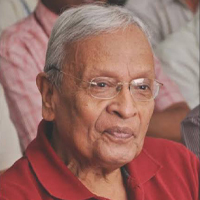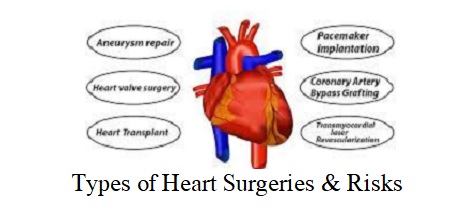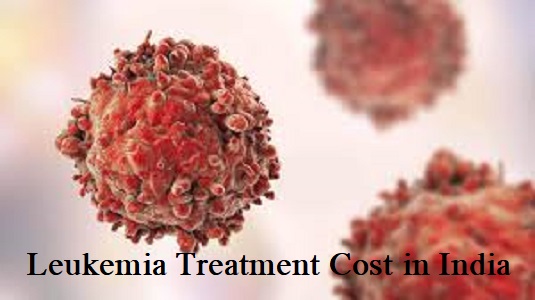Parathyroid Cancer: Causes, Symptoms, Diagnosis, Treatment, Cost & Recovery
Parathyroid cancer is a rare cancer that begins in the parathyroid glands, which are located behind the thyroid in the neck. Parathyroid cancer is a rare disease, accounting for only 0.005% of all cancers. The annual incidence of parathyroid cancer is estimated to be between 3.5 and 5.7 cases per 10,000,000 people. It is not classified in the traditional four-stage classification, as are many other cancers. Instead, it is classified into three types: localized, metastatic, and recurring. You can read in details parathyroid cancer treatment, cost, causes, symptoms, etc.
Localized cancer is limited to the parathyroid gland, whereas metastatic cancer spreads to other regions of the body. Recurrent cancer occurs after first treatment, which is usually surgical removal. The cancer mainly affects people in their forties or fifties, and early detection is difficult, with symptoms often connected to high levels of parathyroid hormone and calcium in the blood. Symptoms such as hyperparathyroidism and hypercalcemia can result in serious complications such as kidney and bone problems.
What are the Parathyroid Glands?
The parathyroid glands, four little pea-sized glands located behind the thyroid gland, perform an important role in the endocrine system. These glands generate parathyroid hormone (PTH), which is essential for maintaining calcium balance in the blood. In other cases, parathyroid glands, known as ectopic glands, are discovered along the esophagus or in the chest. PTH is used by the endocrine system, which is in charge of hormone production, to regulate calcium levels, which are necessary for muscle and nerve function, bone strength, and blood clotting. Primary hyperparathyroidism (pHPT) occurs when one or more glands produce too much PTH, resulting in hypercalcemia.
What is the difference between parathyroid cancer and parathyroid adenoma?
Differentiating between parathyroid cancer and parathyroid adenoma is difficult since both involve overactivity of the parathyroid glands, resulting in excessive parathyroid hormone (PTH) release and hypercalcemia. Parathyroid adenomas, which are benign growths, are more common than parathyroid cancer. The primary similarity is their effect on PTH levels. Because of the potential danger caused by hypercalcemia, surgical removal of the hyperactive parathyroid gland is the most common treatment for both diseases. Further testing is required to determine if the growth is a benign adenoma or cancer, emphasizing the necessity of a proper diagnosis and tailored treatment options.
What are the Different Types of Parathyroid Cancer?
Parathyroid cancer occurs in two types, each distinguished by its effect on parathyroid hormone (PTH) levels. The most common kind includes cancer cells causing excessive PTH synthesis, which raises calcium levels in the bloodstream. This variety is distinguished by elevated PTH and calcium levels. Non-functioning parathyroid cancer, which accounts for less than 10% of cases, is extremely uncommon. Individuals with this variation do not have elevated PTH or calcium levels. Following a cancer diagnosis, additional tests are performed to identify whether the cancer is localized, metastatic, or recurring.
What are the Causes of Parathyroid Cancer?
The exact cause of parathyroid cancer is unknown in a majority of cases.
- Genetic Factors: Certain rare genetic diseases increase the possibility of developing parathyroid cancer. These are some examples:
- Multiple endocrine neoplasia type I (MEN1)
- Familial isolated hyperparathyroidism (FIHP)
- Hyperparathyroidism-jaw tumor syndrome
- Radiation therapy: Individuals who have previously received radiation therapy to the head or neck region may be at an increased risk of developing parathyroid cancer.
- Genetic Mutations: Both somatic and germline mutations contribute to the development of parathyroid cancer. The CDC73 gene, in particular, has been linked to the disease, with mutations found in up to 70% of patients. Individuals with these mutations have a higher risk of metastasis, recurrence, and a lower chance of survival.
- Non-Genetic Factors: Other non-genetic factors that increase the risk of parathyroid cancer include a history of hyperparathyroidism with chronic kidney disease, thyroid cancer, and past neck radiation therapy.
- Age and Gender: Parathyroid cancer is extremely rare and usually affects people over the age of 30. It affects both men and women equally.
What are the Symptoms of Parathyroid Cancer?
The symptoms of parathyroid cancer are caused mostly by high calcium levels in the blood, a condition known as hypercalcemia. These symptoms, which can appear in many regions of the body, include:
- Urination Frequency: An increased need to urinate more frequently than usual.
- Increased Thirst: Having an increased thirst.
- Vomiting and Nausea: Feeling uneasy and vomiting.
- Reduced Appetite: Not feeling as hungry as normal.
- Constipation: It is characterized as difficulty passing stools.
- Fatigue: It is characterized as persistent fatigue.
- Depression: Emotional symptoms such as sadness or depression.
- Forgetfulness or Memory Loss: Concentration problems and memory problems.
- Muscle Aches, Weakness, and Cramping: Physical discomfort and muscle weakness.
What is the Diagnosis of Parathyroid Cancer in India?
Because the cells of benign parathyroid adenomas and those of parathyroid cancer are so similar, diagnosing parathyroid cancer can be difficult. The diagnosis often gets confirmed after surgical removal of the hyperactive parathyroid gland (parathyroidectomy) and later tissue testing. In some cases, surgeons may discover parathyroid cancer during surgery. Various tests and treatments, both pre-and post-surgery, are used in the diagnostic process.
Diagnostic Tests Before Surgery:
- Blood Calcium Test: This test determines the amount of calcium in the blood.
- Blood PTH Test: It determines the level of parathyroid hormone in the blood.
- Parathyroid Scan: A radioactive sestamibi scan and/or CT scan are used to detect abnormal parathyroid glands.
Post-surgery Cancer Spread Diagnostic Tests:
- CT Scan (Computerized Tomography): This procedure uses X-rays and a computer to create detailed 3D images of the body.
- MRI (Magnetic Resonance Imaging): A huge magnet, radio waves, and a computer are used to generate detailed images without the use of radiation.
Overview of the Diagnostic Process:
- Physical Exam and Medical History: The doctor will examine the patient and ask about the medical history.
- Palpation: Palpation is used to detect parathyroid cancer in around half of the cases.
- Blood tests: They determine calcium and PTH levels, which are important in diagnosing parathyroid cancer-related abnormalities.
- Radiographic Scans: Sestamibi scans and neck ultrasounds can help discover abnormal parathyroid glands before surgery.
- Specialized Scans: CT, MRI, and PET scans are used after surgery to determine whether the cancer has spread.
What are the different stages of Parathyroid Cancer?
Although rare, parathyroid cancer may progress through multiple stages, changing treatment options and prognosis. Unlike other cancer staging methods, parathyroid cancer is frequently classed based on tumor size rather than a typical four-stage approach. The following is a description of the many phases of parathyroid cancer:
- Localized Parathyroid Cancer: Parathyroid cancer often begins as a localized disorder, which means that the abnormal growth of cells is limited to one of the four parathyroid glands. At this stage, cancer may have spread to the gland and may be affecting neighboring tissues.
- Metastatic Parathyroid Cancer: Metastatic Parathyroid cancer may metastasize, spreading to other regions of the body beyond the primary gland, as it advances. The lungs, bones, lymph nodes, liver, and pancreas are common sites of metastasis. This stage suggests that the disease is more advanced and complex.
- Recurrent Parathyroid Cancer: Recurrence is a major issue in cases with parathyroid cancer. Cancer can return even after the initial treatment, often within a few years following the initial operation. Recurrent parathyroid cancer presents difficulties for doctors, necessitating close monitoring and specific treatments.
What are the treatment options for Parathyroid Cancer in India?
Surgical Procedures:
- En bloc resection: Complete removal of the malignant parathyroid gland and its surrounding capsule. Some neighboring tissues, half of the thyroid gland, muscles, and nerves may be removed.
- Tumor Debulking: It involves eliminating as much tumor mass as possible, while complete removal may not be achievable.
- Metastasectomy: Cancer that has spread to other tissues or organs, such as the lungs, is surgically removed.
Chemotherapy and Radiation Therapy:
- Limited Efficacy: Due to their low efficacy, they are rarely used for parathyroid cancer treatment.
- Case-by-Case Consideration: Depending on the conditions, some individuals may be considered for chemotherapy or radiation.
Hypercalcemia Medications:
- Cinacalcet (Sensipar): It lowers blood calcium levels by regulating parathyroid hormone levels.
- Bisphosphonates: It is calcium-inhibiting drugs that are given intravenously or orally.
- Denosumab (XGEVA): It is a monoclonal antibody that lowers calcium levels and helps to prevent fractures.
Correction of Hypercalcemia:
- IV fluids: It is used to treat hypercalcemia, especially in severe cases.
- Calcitonin: This hormone regulates calcium levels by acting on parathyroid cells.
Recurrent Procedures: If the cancer returns, multiple procedures may be done to enhance survival and reduce the symptoms of hypercalcemia.
Radiofrequency Ablation (RFA): it is used in the treatment of metastatic parathyroid cancer. Heat is used to kill cancer cells and limit parathyroid hormone synthesis.
What are the Risk Factors Associated with Parathyroid Cancer Treatment in India?
The path to treatment for parathyroid cancer involves overcoming difficulties and possible risks. The following are important factors to consider when treating parathyroid cancer:
- Metastasis of Thyroid Cancer: One major risk in the treatment of parathyroid cancer is the possible spread of cancer cells to other regions of the body, with the lungs and bones being common sites. To address the spread of cancer, a comprehensive approach is required, affecting overall treatment options and prognosis.
- Severe Hypercalcemia Challenges: Hypercalcemia, defined by high calcium levels, occurs as an important effect of parathyroid cancer treatment. The majority of deaths from parathyroid cancer are caused by the difficult management of severe hypercalcemia rather than the cancer itself. To effectively handle this potentially fatal illness, careful monitoring and action are required.
- Parathyroid Cancer Recurrence: Despite initial therapeutic efforts, parathyroid cancer often recurs, requiring repeated procedures. Recurrence complicates disease care and necessitates continual monitoring and changes in the treatment strategy.
- Surgical Intervention difficulties: Surgery is the major treatment approach for parathyroid cancer, although it has its own set of difficulties. Damage to the nerves that control the vocal cords may result in hoarseness or voice changes. Infections at the surgical site are also a risk, highlighting the importance of sterilization methods.
- Hypocalcemia and Seizure Risk: Surgical operations may result in hypocalcemia, which is defined by low calcium levels and can be life-threatening with symptoms such as pulling movements or seizures. Controlling calcium levels is important for avoiding complications after surgery.
- Scarring and Functional Implications: Scarring from surgical treatments can have cosmetic as well as functional effects. Scarring must be carefully considered to promote the best outcomes and patient satisfaction.
What is the success rate of Parathyroid Cancer Treatment in India?
The 10-year survival rate for parathyroid cancer ranges from 80% to 15%. This wide range indicates the disease’s complexity and fluctuation. The stage of diagnosis, the degree of metastasis, and the efficiency of treatment measures are all factors that influence survival rates. Patients with localized cancer who are discovered early have a better prognosis, whereas those with metastatic or recurring disease may face greater challenges. Treatment options that are timely and comprehensive, including surgery and other therapeutic modalities, have an important function in improving survival results.
What is the cost of Parathyroid Cancer Treatment in India?
The cost of parathyroid cancer treatment in India is between $3,300 and $5,500. This comparatively low-price range reflects the accessibility of medical services in India, making it an appealing destination for those looking for cost-effective yet high-quality treatment. The overall cost can vary depending on the hospital, the experience of the doctors and nurses, the stage of cancer, and the treatment technique. Despite the cheaper prices, many Indian hospitals maintain high standards of care and use cutting-edge technology, attracting patients from all over the world for parathyroid cancer treatment.
Best Hospitals for Parathyroid Cancer Treatment in India
Several of the best hospitals in India are well-known for their expertise in treating parathyroid cancer. These top hospitals for parathyroid cancer treatment in India include cutting-edge technology and a staff of skilled oncologists to provide comprehensive and advanced care.
- Medanta – The Medicity, Gurgaon
- Kokilaben Dhirubhai Ambani Hospital, Mumbai
- BLK Super Speciality Hospital, New Delhi
- Narayana Superspeciality Hospital, New Delhi
- Fortis Memorial Research Institute, Gurgaon
- Apollo Hospitals, Greams Road, Chennai
- Artemis Hospital, Gurgaon
- Indraprastha Apollo Hospital, New Delhi
- Gleneagles Global Hospital, Chennai
- Apollo Gleneagles Hospital, Kolkata
Top Doctors for Parathyroid Cancer Treatment in India
There are skilled and experienced doctors in India who specialize in parathyroid cancer treatment and are well-known for their oncology expertise. These doctors have extensive experience identifying and treating parathyroid cancer using cutting-edge medical technology. These top experts, who frequently cooperate with renowned hospitals, can help patients seeking the best care for parathyroid cancer.
- Vedant Kabra – Fortis Memorial Research Institute, Gurugram, India
- Surender Kumar Dabas – BLK-Max Super Speciality Hospital, New Delhi, India
- Sameer Kaul – Indraprastha Apollo Hospital, New Delhi, India
- Harit Chaturvedi – Max Super Speciality Hospital, Saket, New Delhi, India
- Deepak Sarin – Medanta – The Medicity, Gurugram, India
- Ankur Bahl – Fortis Memorial Research Institute, Gurgaon, India
- Sanjay Sachdeva – Max Super Speciality Hospital Saket, New Delhi, India
- Ruqaya Ahmad Mir – Indraprastha Apollo Hospital, New Delhi, India
- K. K. Handa – Medanta – The Medicity, Gurugram, India
- Kalpana Nagpal – Indraprastha Apollo Hospitals, New Delhi, India
Contact Form
Attach Medical Report
Top Doctors & Surgeons in India
Why Choose Us

Personalized Care
24x7 Supports
Top NABH and JCI accredited Hospitals
Free Cost Estimation & Medical Opinion from Specialist
Get Free Tele/Video Consultation
Visa and Traveling Assistance
Post-surgery with Assistance in Follow-ups














